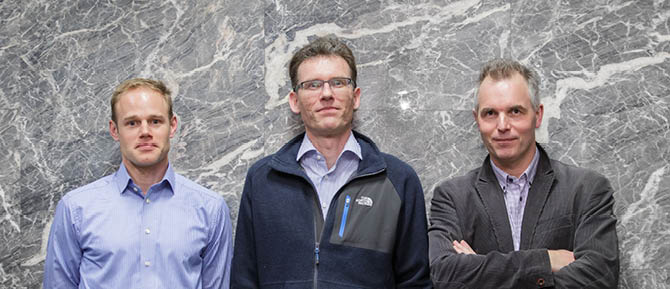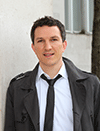Install the app
Install this application on your home screen for quick and easy access when you’re on the go.
Just tap then “Add to Home Screen”
Install this application on your home screen for quick and easy access when you’re on the go.
Just tap then “Add to Home Screen”
Install this application on your home screen for quick and easy access when you’re on the go.
Just tap then “Add to Home Screen”

Click on the course title below for the course instructor's profile
SA102. Introduction to the Use of R
SA103. Linear Algebra and Calculus
SA104. Basics of Inferential Statistics for Political Scientists
SA105. Introduction to Programming for Social Scientists
SA107. Introduction to NVivo 10
SB102. Case Study Research: Method and Practice
SB103A. Process-tracing Methodology I - Foundations and Guidelines
SB103B. Process-tracing Methodology II - Evidence and Empirical Testing in Practice
SB104. Qualitative Comparative Analysis and Fuzzy Sets
SB106. Introduction to Game Theory
SB107. Causal Inference in the Social Sciences
SB108. Introduction to Interpretive Research Designs
SB109. Experimental Research: Methodology, Design and Applications in the Lab and the Field
SC101. Expert Interviews for Qualitative Data Generation
SC102. Introduction to Participatory Research
SC104. Issues in Political, Policy and Organizational Ethnography
SC105. Internet-Based Socio-Political Data: Research Designs and Methods
SD101. Qualitative Data Analysis: Concepts and Approaches
SD102A. Analysing Discourse I - Analysing Politics: Theories, Methods and Applications
SD102B. Analysing Discourse II - Analysing Politics: Theories, Methods and Applications
SD104. Multivariate Statistical Analysis and Comparative Cross-National Surveys Data
SD105. Multiple Regression Analysis: Estimation, Diagnostics and Modelling
SD106. Introduction to Generalised Linear Models
SD107. Correspondence Analysis
SD201. Analysing Political and Social Sequences
SD202. Event History and Survival Analysis
SD203. Applied Multilevel Modelling
SD204. Geographic Information Systems (GIS) for the Social Sciences
SD205. Introduction to Network Analysis using Pajek
SD206. Introduction to Structural Equation Modelling
SD207A. Advanced Topics in Applied Regression: Modelling Issues
SD207B. Advanced Topics In Applied Regression: Data Issues and Causal Approaches
 |
SA101. Introduction to SPSSGregor Petrič, Ph.D., is an associate professor for social informatics and a researcher in the Center for Methodology and Informatics at the Faculty of Social Sciences, University of Ljubljana. He lectures topics in social informatics, methodology of social science research, online communities, internet and society, and new media. His current research focuses on online community governance, social media and empowerment, measurement of online phenomena, and methodological issues in researching online communities and social media. |
||
|
No photo available. |
SA102. Introduction to the Use of RLuka Kronegger graduated from the Faculty of Social Sciences at the University of Ljubljana and received his Ph.D. in Statistics at the same university. Currently he is a researcher at Centre for Methodology and Informatics and associate researcher at Centre for Political Science Research. R is his primary tool for everyday analytical and research work. His main interests are social network analysis, data manipulation, multivariate analysis and other statistical topics. |
||
 |
SA103. Linear Algebra and CalculusAnton Cedilnik, born in 1949 in Ljubljana, attended the University of Ljubljana, graduated in mathematics in 1972. PhD in 1982. Employment: Biotechnical faculty in Ljubljana, starting in 1972 as teaching assistant, retired in 2008 as associate professor. Research work: Institute of mathematics, physics and mechanics in Ljubljana. Teaching courses: mostly undergraduate mathematics for technicians. Author of four books and 25 scientific papers. Speciality: mathematics/algebra and functional analysis/non-associative algebras. |
||
 |
SA104. Basics of Inferential Statistics for Political ScientistsJanez Stare graduated from the Faculty of Mathematics, University of Ljubljana, then held a Master Degree and Ph.D. in Biostatistics from the Faculty of Medicine, University of Ljubljana. He is currently full Professor of Biostatistics at the Faculty of Medicine, Ljubljana, and Head of the Institute of Biostatistics and Medical Informatics, Faculty of Medicine, Ljubljana. His research interests are, or were, explained variation in survival analysis, predictive ability of regression models in survival analysis, frailties, random effects in survival models, relative survival, bibliometry. |
||
 |
SA105. Introduction to Programming for Social ScientistsNils B. Weidmann is Professor of Political Science at the University of Konstanz, Germany. He received an MSc in Computer Science from the University of Freiburg in 2003, a MA in Comparative and International Studies from ETH Zurich in 2008 and a PhD in Political Science from ETH Zurich in 2009. He was a Marie Curie Fellow at the Centre for the Study of Civil War, International Peace Research Institute Oslo (2011-12), a Postdoctoral Associate and Lecturer at Yale University (2010-11), and a Postdoctoral Research Associate at Princeton University (2009-10). |
||
 |
SA106. Introduction to STATAAnže Burger is assistant professor at the Faculty of Social Sciences, University of Ljubljana. His research topics include international trade, international factor movements, international business and industrial policy. Apart from academic teaching and research, he also carried out several consulting projects and worked for the Ministry of Finance of the Republic of Slovenia. He has been using STATA intensively for his work for more than 12 years. |
||
 |
SA107. Introduction to NVivo10Marie-Hélène Paré lectures programme evaluation in the Master in Health Social Work at the Open University of Catalonia, Barcelona, and is an international consultant in qualitative data analysis. She was educated in Quebec, Beirut and Oxford. She is a registered social worker who worked and conducted research in violence against women and community participation in humanitarian action. She taught social work at St-Joseph University in Beirut, Lebanon, and has lectured on qualitative data analysis in more than thirty universities worldwide. Her interests lie in qualitative data analysis, qualitative research synthesis, indigenous epistemologies and participatory methodologies. She teaches the introductory and advanced courses on qualitative data analysis at the ECPR Summer School and Winter School. |
||
 |
SB101. Research DesignsSamo Kropivnik has gained his Ph.D. in the field of political science at University of Ljubljana (UL) in 1997. Currently he is Associate Professor of Social Sciences Methodology at Faculty of Social Sciences (UL) and Senior Researcher at Institute of Social Sciences (UL FSS), teaching various courses on marketing research and political science methodology and contributing to research projects on political participation and marketing communications by dealing pragmatically with research approaches and designs, with exploratory and descriptive research methods and techniques in general and in particular with multivariate methods such as clustering, factor analysis and regression. |
||
|
|
SB102. Case Study Research: Method and PracticeIngo Rohlfing is Professor for Political Science, Qualitative Methods at the Bremen International Graduate School of Social Sciences (BIGSSS) and holds a PhD in Political Science. Substantively, he is doing research on party competition and party organisations. Methodologically, he is working on the case study method, process tracing, QCA and multi-method research. He has published in journals such as Comparative Political Studies, Sociological Methods & Research and West European Politics and has published the monograph Case Studies and Causal Inference with Palgrave Macmillan. |
||
|
No photo available. |
SB103A. Process-tracing Methodology I - Foundations and GuidelinesRasmus Pedersen is an Associate Professor at the University of Aarhus. His research areas include Foreign Policy, European Integration and Qualitative Methods development. He has taught numerous classes on Qualitative methodology at BA, MA and PhD-level. He has also instructed on classes on process-tracing at the ECPR Summer School 2011-2014. He has published several research articles, books and book chapters. He has co-authored a book on process-tracing methodology and another on causal case studies both on the University of Michigan Press. |
||
 |
SB103B. Process-tracing Methodology II - Evidence and Empirical Testing in PracticeDerek Beach (Author) is an associate professor of Political Science at the University of Aarhus, Denmark, where he teaches international relations and methodology. He has authored articles, chapters and books on international negotiations, referendums and European integration, and co-authored the book Process-tracing Methods: Foundations and Guidelines (University of Michigan Press), and currently is engaged in writing a book together with Rasmus Brun Pedersen on Causal Case Study Methods (contracted with University of Michigan Press). He has taught qualitative case study methods at ECPR and IPSA summer and winter schools and held numerous workshops and seminars on qualitative methods throughout the world. He is also one of the academic co-convenors of the ECPR Methods School. |
||
 |
SB104. Qualitative Comparative Analysis and Fuzzy SetsCarsten Q. Schneider is Head of the Department of Political Science at Central European University, Budapest. His research focuses on regime transitions, the consolidation and qualities of democracy and measuring political regimes. His book The Consolidation of Democracy in Europe and Latin America has been published with Routledge in 2009. His second field of interest consists in methodology, especially set-theoretic methods, with a focus on Qualitative Comparative Analysis (QCA). He has published in Sociological Methods and Research, European Journal of Political Research, Political Research Quarterly, Socio-Economic Review, and others. His book Set-Theoretic Methods for the Social Science, co-authored with Claudius Wagemann, has been published with Cambridge University Press in 2012. |
||
 |
Patrick A. Mello is a research associate and lecturer at the Chair of International Politics, Technische Universität Dresden (Germany). His substantive research focuses on matters of international relations theory, international security and foreign policy analysis. His methodological research interests evolve around comparative and case study approaches, with an emphasis on fuzzy-set Qualitative Comparative Analysis. He has recently published in the European Journal of International Relations and the Journal of International Relations and Development. His book Democratic Participation in Armed Conflict: Military Involvement in Kosovo, Afghanistan and Iraq has been published with Palgrave Macmillan in 2014. |
||
|
No photo available. |
SB105. Mixed Methods DesignsBojana Lobe is Assistant Professor at the Faculty of Social Sciences, University of Ljubljana (UL), and has been lecturing courses on Methodology of the Social Sciences, Marketing research, New Technologies in Social Science Methodology, Statistics, and Integration of Qualitative and Quantitative methods, Questionnaire Design, Comparative Methodology. Her research interests are integration of qualitative and quantitative methods online, qualitative comparative analysis, researching children’s experiences with mixed methods; she has also authored a book on Integration of Online research Methods. She is a member of the editorial board of International Journal of Multiple Research Approaches. |
||
 |
SB106. Introduction to Game TheoryFlorence So is an Assistant Professor of Political Science and Government at Aarhus University. She received her Ph.D. from University of California, Los Angeles (UCLA) in 2012. Her research interests include parties and elections, legislative governance and formal methods.
|
||
|
No photo available. |
SB107. Causal Inference in the Social SciencesElias Dinas is an Associate Professor of Comparative Politics and the Politics Tutorial Fellow at Brasenose College. His current research focuses on the impact of political socialisation on the formation of partisan identities and on the ideological legacies of authoritarian regimes. Elias teaches a variety of courses in research methods, statistics and causal inference. He obtained his PhD from the European University Institute at Florence and has held previous positions as lecturer at the University of Nottingham and as Prize Postdoctoral Research Fellow at Nuffield College at Oxford. |
||
 |
SB108. Introduction to Interpretive Research DesignsPeregrine Schwartz-Shea is Professor of political science at the University of Utah where she teaches courses in Qualitative-Interpretive Research Methods, Research Design, Public Administration, and Gender and Politics. She conducts research on interpretive methods and human subjects protection policy. With Dvora Yanow, she co-authored Interpretive Research Design: Concepts and Processes (Routledge 2012), the first volume in the Routledge Series on Interpretive Methods that they co-edit. |
||
 |
SB109. Experimental Research: Methodology, Design and Applications in the Lab and the FieldWolfgang Luhan is Assistant Professor of economics at the Ruhr-University Bochum’s Economics department and Director of the Bochum Lab for Experimental Economics (RUBex). His research focus lies on behavioral (macro) economics, bargaining situations and markets. He has been doing experimental research since 2004 and has taught numerous classes on experimental research methods. |
||
 |
SC101. Expert Interviews for Qualitative Data GenerationAlenka Jelen is a Lecturer, PG Programme Director and Researcher at the University of Stirling and a General Secretary of ECREA (European Communication Research and Education Association). She holds a PhD in Sociology – Communication Sciences from the University of Ljubljana, Slovenia. Her current research interest is in public relations and political communication studies with a focus on the interactions between media and politics and expert interviews. |
||
 |
SC102. Introduction to Participatory ResearchMaria Mancilla Garcia is an associate researcher at the University of Malaga. PhD in Development Studies, Queen Elizabeth House, University of Oxford. Her research interests include environmental public policies, governance issues in social-ecological systems and qualitative research methods. She specialises on Latin America. She has taught qualitative methods at the University of Oxford and has collaborated with Marie-Hélène Paré in previous ECPR schools. |
||
 |
SC104. Issues in Political, Policy and Organizational EthnographyDvora Yanow is a policy/political and organisational ethnographer and interpretive methodologist. Her research and teaching are shaped by an overall interest in the generation and communication of knowing and meaning in organisational and policy settings. Current research topics include practice studies, research regulation (ethics board) policies, built space/place analysis, science/technology museums and the idea of science, and state-created categories for race-ethnic identity, immigrant integration policies and citizen-making practices. Her most recent book, Interpretive Research Design: Concepts and Processes (Routledge 2012), with Peregrine Schwartz-Shea, is the first volume in their co-edited Routledge Series on Interpretive Methods; and the second edition of their co-edited Interpretation and Method: Empirical Research Methods and the Interpretive Turn has recently appeared (ME Sharpe 2013). |
||
|
|
SC105. Internet-Based Socio-Political Data: Research Designs and MethodsLaura Sudulich is a Research Fellow at the Université Libre de Bruxelles. She holds a PhD in Political Science from Trinity College Dublin. She worked, from 2009 to 2012, at the University of Amsterdam as a lecturer and post-doctoral fellow, and she was awarded a Max Weber postdoctoral fellowship at the European University Institute in 2012-2013. She is the PI of the project “Political Knowledge and the Web” – funded by the Wiener-Anspach Foundation - in collaboration with the Oxford Internet Institute. Her research interests include new media and public opinion, electoral behaviour, campaigns and Voting Advice Applications. |
||
 |
SD101. Qualitative Data Analysis: Concepts and ApproachesMarie-Hélène Paré lectures programme evaluation in the Master in Health Social Work at the Open University of Catalonia, Barcelona, and is an international consultant in qualitative data analysis. She was educated in Quebec, Beirut and Oxford. She is a registered social worker who worked and conducted research in violence against women and community participation in humanitarian action. She taught social work at St-Joseph University in Beirut, Lebanon, and has lectured on qualitative data analysis in more than thirty universities worldwide. Her interests lie in qualitative data analysis, qualitative research synthesis, indigenous epistemologies and participatory methodologies. She teaches the introductory and advanced courses on qualitative data analysis at the ECPR Summer School and Winter School. |
||
|
No photo available. |
SD102A. Analysing Discourse I - Analysing Politics: Theories, Methods and ApplicationsMichał Krzyżanowski is Full Professor and Chair of Media and Communication Studies at Örebro University, Sweden. He has lectured and guest-lectured widely including at the Universities of Aberdeen, Bremen, Brussels (VUB), Florence (EUI), Göteborg, Lancaster, Milan (Bicocca), Poznań, Tilburg or Umeå. Michał is Executive Editor of Journal of Language and Politics and sits on editorial boards of such journals as, inter alia, Critical Discourse Studies, Social Semiotics or Qualitative Sociology Review. He also co-edits Book Series Bloomsbury Advances in Critical Discourse Studies. His research focuses on discourse and communication in the context of socio-political, organisational and institutional change in Europe from the point of view of media and the public sphere, communication in/of national and supranational politics and organisations, social and political identities, and discrimination and social exclusion. He has also worked on developing new approaches in qualitative research methodology and critical discourse studies. |
||
|
No photo available. |
SD102B. Analysing Discourse II - Analysing Politics: Theories, Methods and ApplicationsMichał Krzyżanowski is Full Professor and Chair of Media and Communication Studies at Örebro University, Sweden. He has lectured and guest-lectured widely including at the Universities of Aberdeen, Bremen, Brussels (VUB), Florence (EUI), Göteborg, Lancaster, Milan (Bicocca), Poznań, Tilburg or Umeå. Michał is Executive Editor of Journal of Language and Politics and sits on editorial boards of such journals as, inter alia, Critical Discourse Studies, Social Semiotics or Qualitative Sociology Review. He also co-edits Book Series Bloomsbury Advances in Critical Discourse Studies. His research focuses on discourse and communication in the context of socio-political, organisational and institutional change in Europe from the point of view of media and the public sphere, communication in/of national and supranational politics and organisations, social and political identities, and discrimination and social exclusion. He has also worked on developing new approaches in qualitative research methodology and critical discourse studies. |
||
 |
SD103. Content AnalysisKostas Gemenis is Assistant Professor of Research Methods at the Department of Public Administration, University of Twente. His research interests include measurement in the social sciences, and content analysis with applications to estimating the policy positions of political actors. He is also currently involved in Preference Matcher (www.preferencematcher.org), a consortium involving researchers who collaborate in developing e-literacy tools designed to enhance voter education. |
||
|
|
SD104. Multivariate Statistical Analysis and Comparative Cross-National Surveys DataBruno Cautrès is attached to the CEVIPOF - Centre de recherches politiques de Sciences Po (Paris) at the Fondation Nationale des Sciences Politiques in Paris. He is a senior CNRS research fellow with interests in voting behaviour, political attitudes and behaviours, comparative survey research and quantitative techniques. He is involved in European Social Survey, European Values Studies, International Social Survey Programme and European elections studies. He participates to the developments of the elections studies in France. Its current research programme concerns political trust and attitudes to democracy in France. |
||
 |
SD105. Multiple Regression Analysis: Estimation, Diagnostics, and ModellingBernhard Kittel is professor of Economic Sociology at the University of Vienna. Previous engagements include the University of Oldenburg, the University of Amsterdam, the University of Bremen, and the Max Planck Institute for the Study of Societies in Cologne. His research interests cover collective decision-making, political economy and comparative research methodology. |
||
 |
SD106. Introduction to Generalised Linear ModelsFederico Vegetti is a post-doc researcher in political science at the Central European University in Budapest. He took his PhD in Political Science from the University of Mannheim in 2013. His research interests include political psychology, comparative political behavior and quantitative research methodology. |
||
 |
SD107. Correspondence AnalysisPhilippe Blanchard, PhD in political science, is an assistant professor in political science at the University of Warwick, UK. He works on green politics, political communication, and methods for social and political sciences: multivariate statistics, longitudinal methods, interviewing and content analysis. He is presently conducting research about gendered careers in trade unions, transnational economic elites and big data for political science. He has taught methods and techniques for social and political sciences in France, Switzerland, Austria, Denmark and the USA. |
||
 |
SD201. Analysing Political and Social SequencesPhilippe Blanchard, PhD in political science, is an Assistant professor in political science at the University of Warwick, UK. He works on green politics, political communication, and methods for social and political sciences: multivariate statistics, longitudinal methods, interviewing and content analysis. He is presently conducting research about gendered careers in trade unions, transnational economic elites, and big data for political science. He has taught methods and techniques for social and political sciences in France, Switzerland, Austria, Denmark and the USA. |
||
 |
SD202. Event History and Survival AnalysisJanez Stare graduated from the Faculty of Mathematics, University of Ljubljana, then held a Master Degree and Ph.D. in Biostatistics from the Faculty of Medicine, University of Ljubljana. He is currently full Professor of Biostatistics at the Faculty of Medicine, Ljubljana and Head of the Institute of Biostatistics and Medical Informatics, Faculty of Medicine, Ljubljana. His research interests are, or were, explained variation in survival analysis, predictive ability of regression models in survival analysis, frailties, random effects in survival models, relative survival, bibliometry. |
||
 |
SD203. Applied Multilevel ModellingZoltán Fazekas is a Post-Doctoral Researcher in Political Behavior and Individual Differences at the Department of Political Science and Public Management, University of Southern Denmark. He earned his PhD in political science at the Department of Methods in the Social Sciences, University of Vienna where he was an Early Stage Researcher in the Marie Curie Initial Training Network in Electoral Democracy (ELECDEM). He holds a BA in Economics, MA in European Affairs and an MA in Political Science. His fields of interest are: comparative electoral behavior, political psychology, and quantitative methods. He prefers simultaneous estimation and truly dislikes the quest for R2 maximisation. |
||
 |
SD204. Geographic Information Systems (GIS) for the Social SciencesFrancisco Freitas is a sociologist who studied natural and technological risks and Geographical Information Systems (GIS). His special interests are in the field of quantitative and qualitative research methods. He has been implementing and conducting computer-assisted analyses of qualitative and quantitative data for years in a variety of research projects. Currently he is a full researcher at the ALICE Project, an international project hosted at CES-UC and funded under an Advanced Grant of the European Research Council. |
||
|
|
SD205. Introduction to Network Analysis using PajekVladimir Batagelj is professor of Discrete and Computational Mathematics at the University of Ljubljana. His main research interests are in mathematics and computer science: combinatorics with emphasis on graph theory, algorithms on graphs and networks, combinatorial optimisation, algorithms and data structures, cluster analysis, visualisation, social network analysis and applications of information technology in education. With Andrej Mrvar he is developing from 1996 a program Pajek for analysis and visualisation of large networks. He is a co-author of the books Exploratory Social Network Analysis with Pajek (Cambridge University Press, 2005; Second edition, 2011), Generalized Blockmodeling (Cambridge University Press, 2004) and Understanding Large Temporal Networks and Spatial Networks (Wiley, 2014). |
||
 |
SD206. Introduction to Structural Equation ModellingJochen Mayerl is researcher and lecturer in empirical methods of Social Sciences at University of Kaiserslautern (Germany) since March 2013. From November 2001 to February 2013, he was lecturer in Sociology and empirical social research at University of Stuttgart, where he has taught various research and analysis methods. He finished his doctoral thesis "Cognitive foundations of social behaviour: theoretical and statistical analysis of attitude-behaviour relations" in 2008. In winter term 2011/2012, he was substitute professor at University of Kassel, Germany. His main research interests in methodology are new developments and applications in structural equation modelling, response effects in surveys and response latency measurement in computer assisted surveys. He published in the field of methodology as well as sociological theory (attitude-behaviour research, bounded rationality, framing) and substantial research (e.g. donation behaviour, environmental concern, ethnocentrism, political attitudes). |
||
 |
SD207A. Advanced Topics in Applied Regression: Modelling IssuesLevi Littvay holds a PhD in Political Science from the University of Nebraska-Lincoln where he also studied Survey Research and Methodology. Held visiting positions at Washington State, Eotvos Lorand and Zagreb University and taught a number of workshops on statistical topics. Predominantly a methodologist, Levi’s research strives to find new, interdisciplinary analytical strategies to complex problems and research questions. Currently researches statistical methods, political behaviour and political psychology. |
||
 |
SD207B. Advanced Topics in Applied Regression: Data Issues and Causal ApproachesLevi Littvay holds a PhD in Political Science from the University of Nebraska-Lincoln where he also studied Survey Research and Methodology. Held visiting positions at Washington State, Eotvos Lorand and Zagreb University and taught a number of workshops on statistical topics. Predominantly a methodologist, Levi’s research strives to find new, interdisciplinary analytical strategies to complex problems and research questions. Currently researches statistical methods, political behaviour and political psychology. |